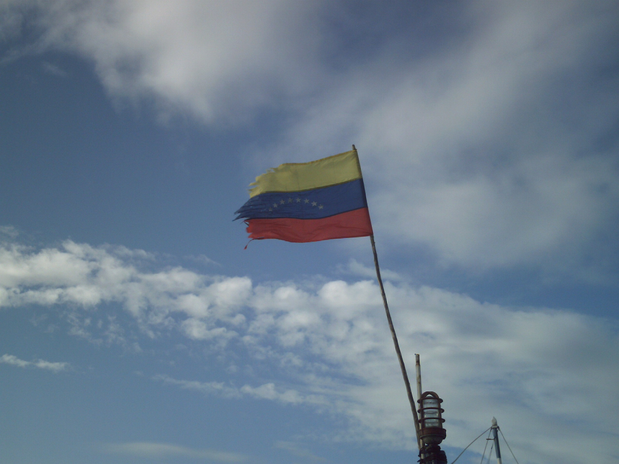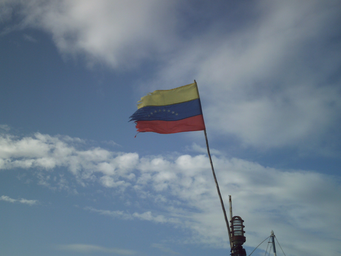Essequibo is a territory located on the Guyana Shield, more specifically in the west of the Essequibo River in the north of South America. This area encompasses 159.000 km² and, as one of the oldest formations of the planet, it is rich in natural and mineral resources. For instance, the gold mine Omai is an essential Guyana source of income and the waters are rich in oil deposits. It also houses 300 hundred people.
Also situated in South America, Venezuela borders Colombia, Brazil, and Guyana. It is rich in oil reserves too – what keeps the economy of it -, has a unique biodiversity and houses 32 million people in more than 916 thousand km². Apart from that, Venezuela is facing a political crisis – criticized worldwide – and is claiming the Essequibo zone.
venezuela’s main purpose with the annexation
Originally, Essequibo was part of a Spain domain, called Captaincy General of Venezuela (now recognized just as Venezuela), which achieved its independence in 1811. As a result, Venezuela became responsible for controlling this region.
However, the United Kingdom and the Netherlands signed a contract looking to take 51.700 km² from Venezuela’s east, which would be part of British Guyana some years later. This became a constant dispute between these nations until 1899, when the Paris Arbitral Award was promulgated, in favor of the UK.
Four decades later, this decision came to light again with an objection to the judges of the case, accused of being partial. With effect, it was reclaimed and, in 1966, before the recognition of Guyana’s independence, the UK and the USA tried to solve this question but nothing happened until Hugo Chavez’s government, when it was archived.
Nevertheless, in 2015 unexpected oil stocks were unearthed in Essequibo, catching the eye of US oil companies, such as ExxonMobil – one of the biggest oil corporations in the USA – to explore this fossil fuel. Bearing this in mind, Nicolás Maduro (Venezuela’s president) argued that “The incorporation of this ⅔ Guyana land is paramount to enhance the ‘national unity of Venezuela’ in face of the outcoming election set – he would be the president who solved a 200 years big deal – and the “defense” of Essequibo from the unsustainable exploration of the US”.
This pronouncement “reflects the historical conflictual relationship between Venezuela, United States and the UK, in which the English-speakers, to protect their interest in keeping the colony – such as exploration without much supervision – laid down sanctions to do so” as Fábio Adorno, geography teacher specialized in geopolitics formed by PUC-SP says.
“Because of this reality, Venezuela always tries to keep the USA far from the Latin American country’s ambitions” and also that the “discovered reserve is not part of these aspirations, as Venezuela is already the main and biggest producer of petrol all around the globe”, included the professor.
DID THE NATION ATTEND TO THIS CALLING?
Venezuelans mostly agreed with Maduro’s law promulgation on April 4th which annexed 75% of Guyana’s territory. On the other hand, in response to that, the Guyanese authorities weren’t welcoming by saying: “We will not tolerate the annexation, seizure or occupation of any part of its sovereign territory. Guyana has always upheld the principles of the United Nations Charter, the rule of law and the peaceful resolution of disputes”, as documented in a report by Agência Brasil.
SO, WHAT WOULD BE THE IMPACT OF THIS ANNEXATION?
According to Adorno, “there is a strong question in the scope of the discourse, but factually, not much happens”, especially because, if searched in Google Maps, people can already find the division of Guyana by a dotted line. That points out the activity of Maduro’s law, with no Guyana’s population reaction.
“Maduro has a lot of internal power, while Guyana has barely spoken. He proposed annexation to the people, 80% accepted and it remained that way.”, continued Adorno.
It also wasn’t put in the international spotlight, acting like an unimportant issue to the rest of the world. “And this is typical of things in Third World countries, where no one gives much visibility to the problems, especially if they don’t have the strength to combat the great powers, like the United States, which are exploring the Essequibo region with great openness and authorization from the government”, he added.
In conclusion, “there is nothing Guyana is really able to do and this annexation will not gain sight of the international community”, according to the geographer, meaning not more than a change in the map for South American politics.
————–
The article above was edited by Isadora Mangueira.
Liked this type of content? Check Her Campus Cásper Líbero home page for more!


